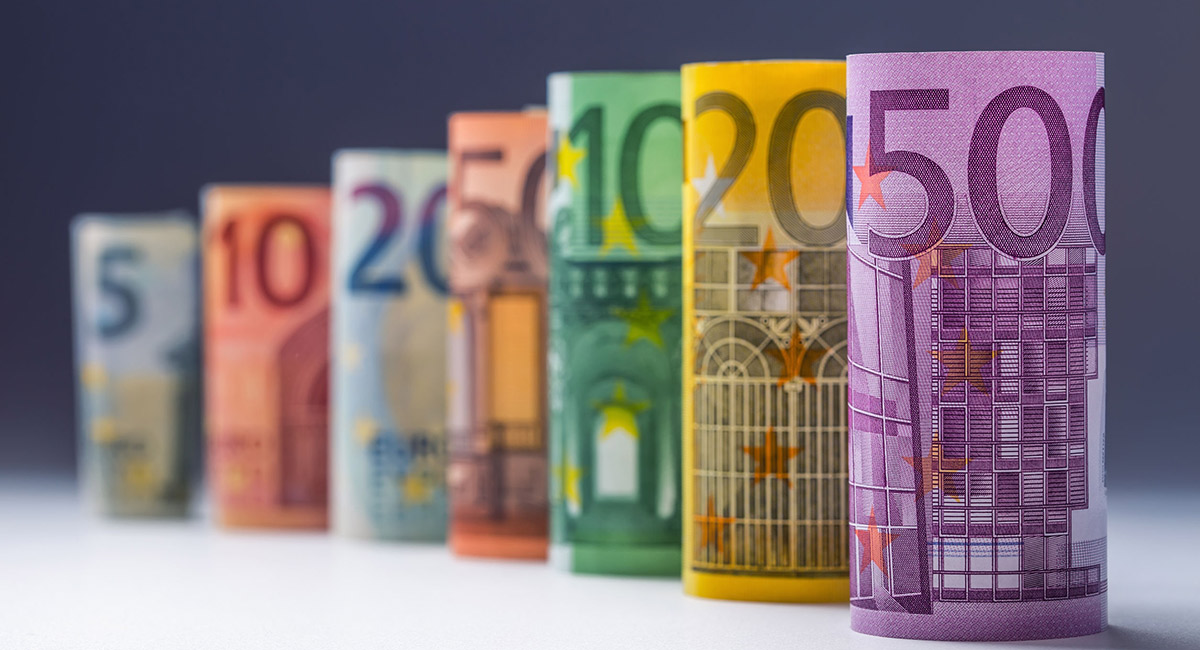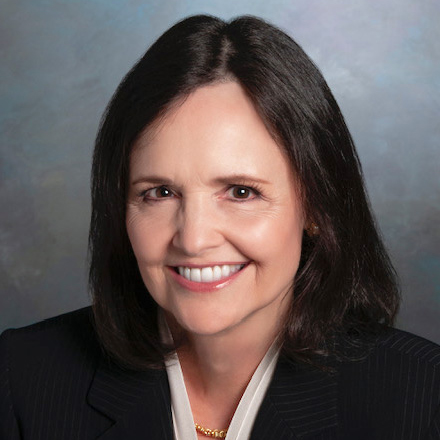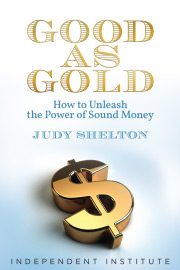Global monetary relations are in disarray. Exchange rates fluctuate wildly among the world’s major trade partners, spawning talk of protectionism and a currency war. Gold is soaring as the dollar slides, and economists debate whether the biggest threat to U.S. recovery is deflation or inflation.
We need a giant of economics to help explain all this and recommend a remedy. Where in the world is Robert Mundell when you need him?
As it turns out, Mr. Mundell—the Columbia University professor who advocated the hard-money, low-tax policy mix that broke stagflation in the early 1980s, and who received the Nobel Prize in 1999 for his work on exchange rates—happened to be in New York this week. It’s a lucky break. When he’s not at his 500-year-old castle in Italy, the “father of the euro” is usually en route to his next lecture somewhere in the world.
“What is wrong with the global economy today?” I ask him. “How do we fix this monetary mess?”
We are sitting on a comfortably worn sofa in the parlor of his apartment near campus, drinking tea. Plush fabrics drape the walls, along with Baroque paintings in ornately-gilded frames. And there are piles of books in the adjoining rooms. Really. Thick piles of books are stacked in corners, heaped against walls, balanced on short wooden tables.
“The problem started before World War I,” Mr. Mundell commences. “The gold standard was working fairly well. But it broke down because of the war and what happened in the 1920s. And then the U.S. started to become so dominant in the world, with the dollar becoming the central currency after the 1930s, the whole world economy shifted.
“Think of it like the solar system: It started with gold at the center, as the sun, but then Jupiter got bigger and bigger until all the planets started circulating Jupiter instead.”
“And the U.S. is Jupiter?” I deduce.
“Yes,” he affirms, “and the spread of the dollar was just miraculous as it became the anchor for the Bretton Woods fixed exchange rate system after World War II. The price of gold was fixed at $35 an ounce in 1934, but by the time the U.S. got through the Korean War, the Vietnam war, with all the associated secular inflation, the price level had gone up nearly three times.
“Gold became very undervalued; European countries traded in dollars for gold until the U.S. lost more than half its stock. The U.S. went off gold in 1971, under Nixon, and nobody else has gone on it again.”
Mr. Mundell, 77, is clearly in his element as he traces the monetary history of the last century. Like his apartment, he radiates a charmingly disheveled elegance, jaunty in jeans and an open-necked cream shirt.
“So our problems today,” I posit, “are related to the fact that the Bretton Woods system of fixed exchange-rates linked to gold broke down?”
“The system broke down,” he hastens to explain, “not because of fixed rates. Fixed exchange rates operate between California and New York . . . the system broke down because there was no mechanism to keep the world price level in line with the price of gold.”
Atop the closest mound of books is a volume titled: “Shaping the Post-War World: The Clearing Union.” It features the collected writings of John Maynard Keynes from 1940-1944, when the famous British economist was helping to design a new international monetary order to provide a stable foundation for a world economy devastated by war.
“Are you thinking,” I venture, “that maybe it’s time to start figuring out the design for a new international monetary order? Should the U.S. offer new proposals regarding exchange rates and monetary policy?”
Mr. Mundell, who is Canadian, looks troubled. “I don’t think the U.S. has any ideas, they don’t have strong leadership on the international economic side,” he replies. “There hasn’t been anyone in the administration for a long time who really knows much about the international monetary system.”
He elaborates that it would not be possible today to forge a monetary system with the dollar as the key reserve currency, as President Franklin Roosevelt and Treasury Secretary Henry Morganthau did in the 1940s. “To be fair, America’s position is not nearly as strong now,” he concedes. “But what has disappointed me is the reluctance of the U.S. to take into account this big movement in the rest of the world to do something about restoring stability to the international monetary system.” He frowns. “They ignore it, as if the dollar’s exchange rate is a mere domestic matter.”
I take a sip of tea. “Do you think it has to do with our relationship with China?” The U.S. is threatening to impose tariffs on Chinese goods if Beijing doesn’t make them more expensive by revaluing its currency.
“The U.S. berates China for its exchange rate policy, which Washington doesn’t like,” Mr. Mundell says, noting that discriminatory tariffs against China might not be legal under the treaty provisions of the World Trade Organization. “But one-sided pressure on China to change its exchange rate is misplaced.”
Shaking his head, Mr. Mundell asserts: “The issue should not be treated as a bilateral dispute between the U.S. and China. It’s a multilateral issue because the U.S. deficit itself is a multilateral issue that is connected with the international role of the dollar.”
He goes on to explain that the dollar bloc includes China and other Asian countries—except Japan—but that the euro now constitutes the rest of the world. “The euro today is the counter-dollar,” he says. “The most important initiative you could take to improve the world economy would be to stabilize the dollar-euro rate.”
He thinks the European Central Bank, along with the Federal Reserve, should intervene in currency markets to limit movement in the world’s single most important exchange rate, pointing out that the dollar and euro together represent 40% of the world economy.
“If the U.S. demurs, are we headed toward a global currency war?” I ask.
Mr. Mundell looks tentative. “I don’t think it will come to a currency war,” he says. “The U.S. is still very powerful; it would be an unequal battle. But it’s important to have a high-level conference to explore opinions for reforming the world monetary system. The Europeans should be involved, as well as emerging countries.” He mentions that French President Nicolas Sarkozy recently spoke about the need to bring experts together for an intellectual discussion on the issue, perhaps in China.
“So you think a fixed exchange-rate system is more conducive to global free trade and global economic recovery than floating rates?” I ask.
Mr. Mundell registers surprise that I would even inquire. “The whole idea of having a free trade area when you have gyrating exchange rates doesn’t make sense at all. It just spoils the effect of any kind of free trade agreement.”
Coming from the man who helped design Europe’s single currency, it makes perfect sense. Since its introduction in 1999, the euro has eliminated exchange-rate fluctuations among the 16 trade partners who have adopted it. In just over a decade, the euro has become the world’s second largest reserve currency after the dollar, and the second most-traded currency in foreign-exchange markets.
Which brings to mind another question. “What do you think about the rise in currency trading by banks, with some $4 trillion now turning over daily in global currency markets?”
Mr. Mundell thrusts out his arms. “It’s part of the sickness of the system! These currencies should be fixed, as they were under Bretton Woods or the gold standard. All this unnecessary noise, unnecessary uncertainty; it just confuses the ability to evaluate market prices.”
Mr. Mundell has a knack for boiling things down to simple terms. He grew up on a four-acre farm in Ontario, went on to earn a Ph.D. from the Massachusetts Institute of Technology, and would ultimately challenge the renowned Milton Friedman at the University of Chicago during the late 1960s. Both economists were strong proponents of free markets, but Mr. Mundell disagreed with Mr. Friedman’s advocacy of floating exchange rates.
The sound of a buzzer indicates lunch has arrived. Mr. Mundell suggests that we continue our discussion at the table and politely invites his assistant Ivy Ng, who has been taking careful notes, to join us.
“We’ve been talking about the possibility of global monetary reform,” I continue, deciding to switch gears. “Let’s talk a bit about domestic monetary policy. What do you think the Federal Reserve should be doing right now?”
It’s a seamless transition for Mr. Mundell. “The Fed is making a big mistake by ignoring movements in the price of the dollar, movements in the price of gold, in favor of inflation-targeting, which is a bad idea. The Fed has always had the wrong view about the dollar exchange rate; they think the exchange rate doesn’t matter. They don’t say that publicly, but that is their view.”
“Well,” I counter, not particularly savoring the role of devil’s advocate, “I suppose Fed officials would argue that their mandate is to try to achieve stable prices and maximum levels of employment.”
Mr. Mundell looks annoyed. “Well, it’s stupid. It’s just stupid.” He tries to walk it back somewhat. “I don’t mean Fed officials are stupid; it’s just this idea they have that exchange-rate effects will eventually be taken into account through the inflation-targeting approach. In the long run, it’s not incorrect—it takes about a year. But why ignore the instant barometer that something is happening? The exchange rate is the immediate reaction to pending inflation. Look what happened a couple weeks ago: The Fed started to say, we’ve got to print more money, inflate the economy a little bit. The dollar plummeted! You won’t get a change in the inflation index for months, but a falling exchange rate—that’s the first signal.”
Clearly on a roll, I press a bit. “You mentioned gold?”
“The price of gold is an index of inflation expectations,” Mr. Mundell says without hesitation. “The rising price of gold shows that people see huge amounts of debt being accumulated and they expect more money to be pumped out.” He purses his lips. “They might not necessarily be right; gold could be overvalued right now.”
Sensing that the soup is getting cold, I decide to cut to the chase: “What would be your winning formula today? What advice would you give to Washington that would help turn around our moribund economy?”
He pauses to think, but only for a moment. “Pro-growth tax policies, stable exchange rates.”
And then, with his spoon poised over his own bowl, he smiles sweetly and beckons for us to begin. “Buon appetito.”









